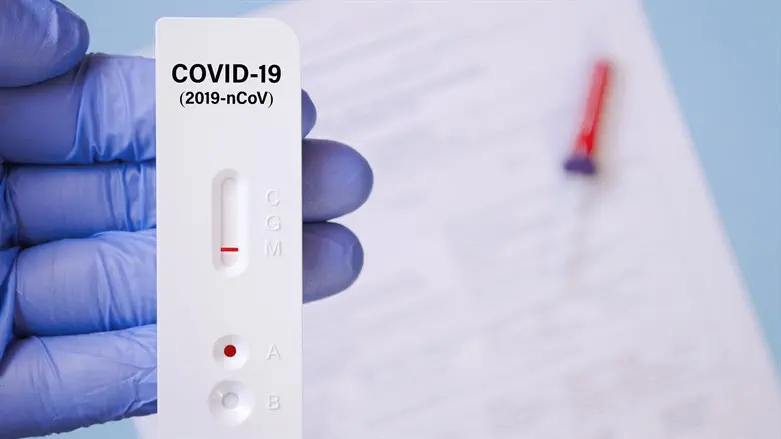
The Pharmaceutical Association of Israel has decided on a project to alleviate the costs of antigen testing. A line of private pharmacies will distribute free tests to families who purchase tests starting with the fourth child. David Pepo, chairman of the Pharmacists' Association, says.
From the very beginning, Pepo emphasizes that this is a private initiative that is not supported and is not subsidized by a government entity. "From the fourth child onwards the tests will be given for free. We put a hand in the pocket and a shoulder under the stretcher."
Asked if the initiative might be less needed in light of the prime minister's promise to give three free tests to every child in the education system, Pepo said that "it is good that there are several initiatives, but three tests may be enough for ten days. The expense that each family is expected to incur is much greater than the cost of three tests."
We also asked about the reliability of the antigen tests, an issue that concerns the public not only in Israel, but throughout world. Pepo replies that these are tests where if negative results are received, it is correct to perform the test again within 48 or 72 hours, but if the result is positive, it is indeed a true result. In such a reality there is a considerable level of reliability even if it is not absolute, he maintains.
Pepo points out that the level of reliability of the test does not always depend on the test itself, and sometimes it depends on the skill of the tester, but beyond that he also finds value in a test whose level of reliability is 50-60 or 70 percent. In his opinion, it is appropriate for the Israeli government to purchase 30-40 million antigen tests and distribute them free of charge to citizens. For the government it is a cost that is a drop in the ocean, but the profit is great also because the cost at such volumes will be much less, also because it will eliminate the black market that arose around the purchase of the tests, and prevent the accumulation of tests at exorbitant prices.
Does not the transfer of tests to the responsibility of the citizens indicate a loss of control? Does it not mean giving up trying to know how many infections there are and what the infection rate is in Israel, whether it is at the beginning, middle or end of the infection wave, since it is not known who actually performed tests, what were the results and who knew how to perform tests accurately, and especially if positive results did send people to isolation or whether they ignored the result and went about their lives as normal?
Pepo believes that on the one hand it does indeed signify a loss of control, but it is necessary since there is no solution that will solve every issue. "There will always be issues at the margins, it will not always be possible to provide an answer to every possibility."
Following this, we mentioned the reality which prevailed in Israel until a few months ago when Shabak personnel identified those who were required to be tested, the Health Ministry was updated on each test performed and each result and the enforcement system made sure that the isolation requirements were indeed fulfilled. Pepo reminds us of the opposition that those policies drew and the difficulty the government had even then in tracking infected citizens.
Is the conclusion that the choice is all or nothing, a loss of control or complete certainty? Is the option of a relatively high level of certainty regarding the situation of Israel and the situation of its citizens not preferable? Pepo agrees that this is indeed the case, but remarks that the decision-makers are no less wise than we are and it can be assumed that their decisions are made out of discretion, even if it includes political discretion.
